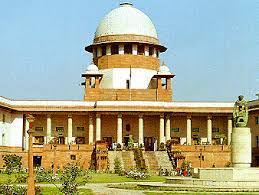In which this court granted bail to the mother-in-law and father-in-law (Petitioners herein) of the Respondent No.2 herein (hereafter “R2” or “applicant” interchangeably) for offences under 420, 406, 468, 34, 120B of IPC. (Para 1)
The money having been not deposited, the anticipatory bail was not granted and they were arrested. After 10 months in custody, this court by order dated 12.07.2019 directed their release on bail. (Para 3)
Subsequently, the husband filed criminal revision petition[CR. R. No. 90/2017] seeking setting aside of ex-parte interim maintenance order which got dismissed in default whereas R-2 also filed criminal revision petition[CR. R. No. 1102/2019] seeking an enhancement and by order dated 7.4.2021, it was enhanced to Rs. 1,27,500. (Para 4)
In the meantime, husband has remarried and now has two kids from his second marriage. (Para 5)
But petitioners did not make the payment and chose to go to jail; even as per Order dated 13.12.2018, this Court referred the matter to the Executing Court but nothing material could be done as the Petitioners were not appearing before the Executing Court and again in the regular bail matter[SLP (Crl.) No. 3876-77 of 2020], this court granted them regular bail. Hence, even after so many rounds of litigation, and after 5 years, R2 is still remediless. (Para 11)
Submitted that R2 obtained the maintenance order only against her husband which can be recovered from the husband or from his assets. The Petitioner is not personally liable to R2 when her husband is alive. There is no law which can directly hold father-in-law to provide maintenance to the wife. (Para 12)
The past history of this case, and the orders of this court have demonstrated the utter obduracy of Varun Gopal, who abandoned the wife, and virtually fled to Australia. The documents placed on record of this court, including the affidavits filed by the petitioner, and the bank account statements, reveal that considerable amounts of money were remitted to Varun Gopal, over a period of time (Para 16)
SUPREME COURT OF INDIA
2023 STPL(Web) 379 SC
[2023 INSC 953]
Manmohan Gopal Vs. State Of Chhattisgarh & Anr.
Miscellaneous Application No(S). 858-859 of 2021 In Criminal Appeal No(S). 85-86 of 2021-Decided on 20-10-2023
https://stpllaw.in/wp-content/uploads/2023/10/2023-STPLWeb-379-SC.pdf







